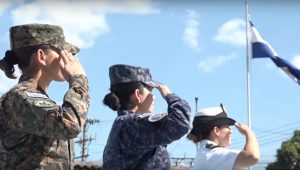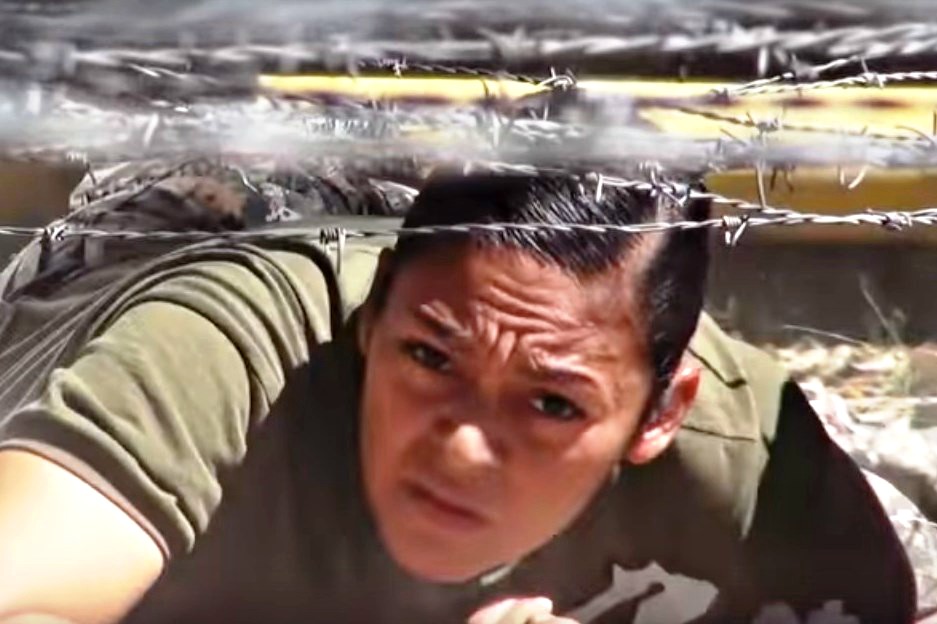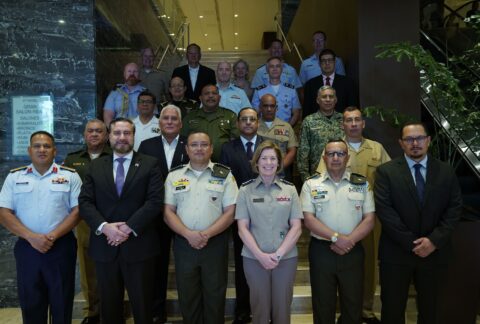Twenty years ago, the Salvadoran Armed Force (FAES, in Spanish) opened its doors to female candidates at the Captain General Gerardo Barrios Military School. Since then, more than 1,500 women have joined the force. In early 2020, female participation within FAES includes 128 officers, three noncommissioned officers, and 480 troops.
In 2019, 634 women enrolled in the Military School. The amount of candidates is constant. “It gives me great satisfaction to share my expertise,” Army First Lieutenant Adriana Burgos, head of Civil Affairs at FAES Transmissions Support Command, told Diálogo. “In 2020, I will lead medical campaigns in rural areas together with service members of the United States, where coordination and logistics are taken very seriously.”

The first 16 female FAES service members graduated in 2006. Ten of them were promoted to major in 2018. The first military woman to officially wear the Salvadoran uniform was Adriana Herrera de Hayem in 1969, after finishing her studies at Mexico’s Military Nursing School. She later earned her doctorate in geriatrics, in Spain. She retired in 2000 as a colonel, the top rank reached by women in El Salvador.
At the Naval Force, the first cohort of women began in 2010. So far, there are nine officers and 25 troops. The top rank reached by women is that of lieutenant commander.
“In the Naval Force, women make their way at all levels. The limits are not in the institution, but within every human being, regardless of their gender,” Lieutenant Junior Grade Marinlys Chicas, tutor at the Center for Naval Education and Instruction, told Diálogo. “We have a woman who works with great success, side by side with gentlemen at the Naval Task Force Trident, our elite group that counters narcotrafficking.”
Salvadoran female service members are also present in United Nations peacekeeping missions.
For example, Major Sandra Hernández is a helicopter pilot with the Salvadoran Air Force’s (FAS, in Spanish) third contingent at the United Nations Multidimensional Integrated Stabilization Mission in Mali. She told Diálogo that she joined this mission because patrolling “brings peace of mind to people, so they can go to work, take their children to school, and not have to stay at home in fear.”
“The increase in female personnel leads to more credible and satisfactory protection responses to meet the needs of local communities. When women are negotiating, peace lasts longer,“ says António Guterres, U.N. secretary-general, on the Office of the Secretary-General website.
Another outstanding Salvadoran woman is FAS pilot María Elena Mendoza, who in 2016 became the first Central American woman to be certified as a combat pilot. Today she is a captain and is deployed in an elite group to protect her country from the skies.
“We are the ones who define authority and place, with mutual respect. I lead groups of male soldiers, and they recognize our leadership style; we fit in perfectly,” said 1st Lt. Burgos. “There are opportunities to better yourself in military activities. There is no challenge that cannot be overcome; you only need discipline.”









